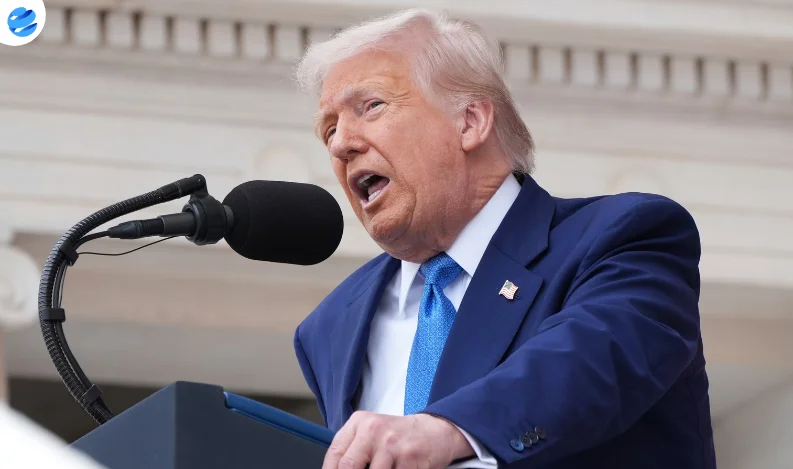A federal appeals court has temporarily reinstated former President Donald Trump’s controversial tariffs, pausing a lower-court ruling that had invalidated a key component of his trade policy.
The U.S. Court of Appeals for the Federal Circuit granted the Trump administration’s emergency request on Thursday, effectively halting a decision by the U.S. Court of International Trade that struck down the tariffs as unlawful. The appeals court said the lower-court judgment is “temporarily stayed until further notice,” allowing time to consider the government’s appeal.
The ruling gives Trump officials critical time to pursue a longer stay and possibly appeal to the U.S. Supreme Court. The administration has warned it will seek emergency relief from the high court if the stay is not granted.
Wednesday’s lower court decision dismantled what Trump had described as “reciprocal” tariffs imposed under the International Emergency Economic Powers Act. The court concluded that the law does not grant presidents the sweeping trade authority Trump had claimed.
The ruling invalidated a range of tariffs issued earlier this year under Trump’s “liberation day” trade push and barred the administration from making any further modifications to those duties. It also gave the government just ten days to comply with the court’s order.
Trump trade advisor Peter Navarro downplayed the setback, telling reporters, “Even if we lose, we will do it another way.”
The decision comes at a sensitive time for the administration, as it negotiates with several countries over new trade deals. Critics argue the legal uncertainty is already weakening the U.S. bargaining position.
Trump himself reacted strongly on social media, calling the lower-court ruling “the harshest financial ruling ever leveled on us as a Sovereign Nation,” and warning it could “completely destroy Presidential Power.”
The plaintiffs in the case, including state attorneys general and U.S.-based companies, have been given one week to respond to the government’s request for a full stay. The administration will have until June 9 to file its reply.
Jeffrey Schwab, an attorney representing the plaintiffs, described the temporary pause as routine. “We are confident the Federal Circuit will ultimately deny the government’s motion shortly thereafter, recognizing the irreparable harm these tariffs inflict on our clients,” he said in a statement.
With both sides preparing for a potential Supreme Court battle, the future of Trump’s trade doctrine remains uncertain, but for now, the tariffs stay in place.























